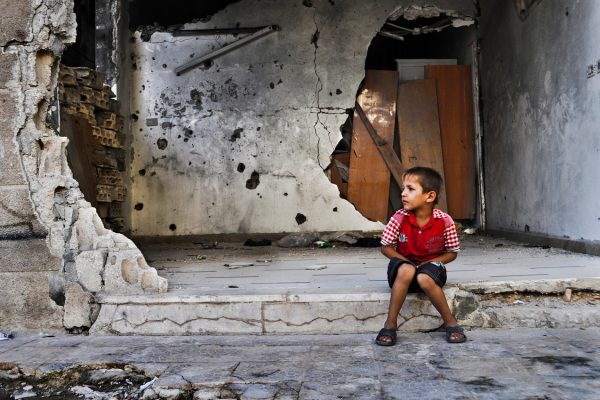Messenger of Allah (peace be upon him) said: “Indeed Allah, Most High said: ‘O son of Adam! Devote yourself to My worship, I will fill your chest with riches and alleviate your poverty. And if you do not do so, then I will fill your hands with problems and not alleviate your poverty.’”
Messenger of Allah (peace be upon him) said: “Indeed Allah, Most High said: ‘O son of Adam! Devote yourself to My worship, I will fill your chest with riches and alleviate your poverty. And if you do not do so, then I will fill your hands with problems and not alleviate your poverty.’”
The topics of poverty and sustenance are frequently mentioned in the Qur’an.
Today, poverty is a pandemic in its own right and continues to rise. The effects from Covid-19 has been estimated to put up to 115 million people into poverty, which has charities around the world campaigning to help get as many people out of poverty as possible.
How can we, as Muslims, reconcile the existence of Allah (SWT) with the prevalence of global poverty and with our own struggles. Why doesn’t God ‘cure’ poverty? Why doesn’t God give me what I want? It would only take Him a second – or less. The Qu’ran sheds light on the matter.
Allah (SWT) the Ultimate Provider of Sustenance
All Muslims believe sustenance comes from God and only God. There is no other avenue for us to procure our needs:
There is not a thing whose storehouses are not with Us. We send it down only according to a well-defined measure.”
15:22
The key to everyone’s sustenance – right from the angels, humans, jinns down to the small bacteria that can’t be seen with the naked idea – all receive their sustenance from God.
God Gives and Withholds Sustenance
God’s policy on distributing sustenance is not without wisdom. He does not freely and openly give as soon as He is asked. This is alluded to in the above verse when it it said sustenance is given in “a well-defined measure” but this point explicitly mentioned in another passage:
It is God who withholds and God who gives abundantly, and it is to Him you will return.”
2:245
Here, Allah (SWT) says He does withhold sustenance from some people. Why? Your guess is as good as mine. Some things are not for us to know and we simply put our faith in God with full knowledge that He is Wise and always acts for our benefit. Still, many reasons have been given for the withholding of sustenance:
- Sinning and not asking for forgiveness
- Not giving someone their due rights
- Having extra sustenance could damage our imaan by the way of arrogance
- Having extra sustenance could make us forget about our Islamic duties
- We won’t do anything of value with the extra sustenance
- We’re not making efforts with our God-given free will to change the situation
It’s not for us to decidedly say which one of these (or something else) could be holding back sustenance but these are some of the reasons given.
Regardless, if we are in need of sustenance, we should keep praying for it whilst adhering to Islam to the best of our capabilities, which is sure to bring God’s blessings our way.
Our Duty to Help Eradicate Poverty
Those of us who have been blessed by sustenance have a duty to help others. The Qur’an has given us some guidelines on how to choose where to give help.
1. People Who Are Wholly Occupied in God’s Way
Give to those needy who are wholly occupied in God’s way and cannot travel in the land (for trade).”
2:273
In the time of the Prophet, there were people, known as Ashab al-Suffah who were unable to earn a living because they had dedicated their entire lives to serving God. They spent most of their time with the Prophet and duly obeyed him in whatever command was given. If they had any free time, they focused on acquiring and sharing knowledge of Islam.
Obviously, the Ashab al-Suffah does not exist now but it does not mean we can’t follow the principle set out by the verse. If we are unsure of where to give charity perhaps a good starting place is institutions that teach and educate scholars of tomorrow. Teachers and students alike at such schools have very little money to go by on as they have decided to make religious studies the pursuit of their life. These scholars will eventually come to our mosques to educate our children and ourselves. There is a great sadaqah jariyah here for us too as we’ll get a portion of the reward for all the knowledge they teach and a portion of the reward of anyone who acts on that knowledge.
Orphans and Widows
The beginning of Surah Insan starts with a description of the characteristics of the righteous. Amongst the descriptors includes the following:
They give food to the poor, orphan and captive, though they love it themselves.”
76:8
In other areas of the Qu’ran God has strongly emphasised His displeasure at those who do not treat the orphan well. As for the widow, the Prophet is reported to have said in Bukhari:
One who cares for widows and the poor is like those who fight in the way of Allah or those who spend their days fasting and their nights praying.”
The Prophet himself was an orphan and widower. These are the most vulnerable members of our society and are in the situation they’re in through no fault of their own and we should support them the best we can.
Condemning Stinginess
Stinginess is a behavioural trait severely condemned by God. Whatever we have is from Him and after meeting our own needs our responsibility is in using a portion of any surplus for charity:
Allah does not love the arrogant and the boastful, who are niggardly and bid others to be niggardly and conceal the bounty which Allah has bestowed upon them. We have kept in readiness a humiliating chastisement for such deniers (of Allah’s bounty).”
(4:36 and 4:37)
At the same time, we need to adopt a middle ground and balanced approach. We can’t give to the extent we put ourselves in poverty. God recognises this:
Do not keep your hand fastened to your neck nor outspread it, altogether widespread, for you will be left sitting rebuked, destitute.”
(17:29)
In certain cases, like that of Zakat, the amount we should give away has been stipulated for us. In all other sadaqah, we should budget how much of our time and money we can give for charitable purposes in the same way we plan out financial ventures such as buying a house or saving for a holiday.





